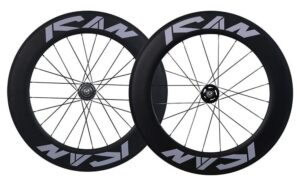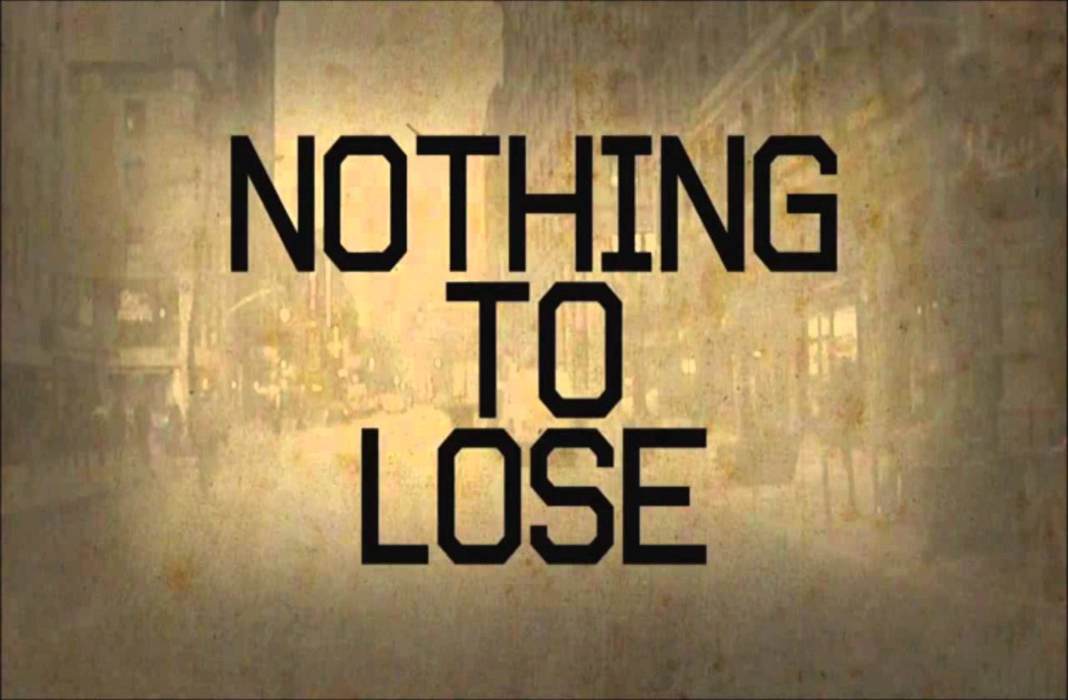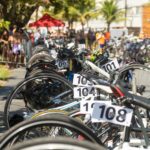In the fifth of my nine-part series exploring the obstacles that block your path to your triathlon goals, I offered some insights into how you can let go of your fear of failure. In this article, I will explain how this process boils down to one simple belief: “I have nothing to lose.”
Not long ago, a triathlete I worked with told me that, after a terrible swim and bike, he ended up having a great race. I asked him why and he said, “After swimming and biking horribly, I felt like I had nothing to lose.” I asked him why he had swum and biked so poorly. He said that he was feeling a lot of pressure to qualify for Worlds and was so focused on needing to have a good race that he didn’t think about what he needed to do to have a good race. In T2, he told himself that he had no chance of achieving his race goal, but he was no quitter, so he just decided he was going to crush the run to help make up for his disappointing swim and bike.
 That phrase, “nothing to lose” got me thinking about how it related to fear of failure. For triathletes who have a fear of failure, the opposite applies; they perform as if they have “everything to lose.” That everything can range from their training buddies won’t think he’s any good to all his training having been a waste to feeling the humiliation and shame of not qualifying for Worlds.
That phrase, “nothing to lose” got me thinking about how it related to fear of failure. For triathletes who have a fear of failure, the opposite applies; they perform as if they have “everything to lose.” That everything can range from their training buddies won’t think he’s any good to all his training having been a waste to feeling the humiliation and shame of not qualifying for Worlds.
These perceptions cause a cascade of thoughts and feelings that pretty much doom you to a poor performance:
- Outcome focus (thinking about the result you want)
- Expectations (feeling the need to have a great result)
- Pressure (to fulfill your expectations)
- Overthinking (instead of trusting your fitness and readiness)
- Future (thinking about what might happen in the race)
- Excessive intensity (really nervous)
- Tentative performance (too cautious)
- No fun (little enjoyment in the experience)
With so much to lose and with so many obstacles put in your way, you can’t help but feel threatened, unmotivated, unconfident, anxious, and unfocused. The inevitable result is tentative, cautious, mistake-ridden performances and the occurrence of the very thing you fear the most: failing to perform your best and not achieving your race goals.
unmotivated, unconfident, anxious, and unfocused. The inevitable result is tentative, cautious, mistake-ridden performances and the occurrence of the very thing you fear the most: failing to perform your best and not achieving your race goals.
I also got to thinking about what the triathlete above thought about and felt after T2. By believing he had nothing to lose, he created a tectonic shift in his psychology from entering T2 that turned his performance around completely. Most basically, he let go of his fear of failure because he believed that he had already failed. In doing so, he shed his expectations and the pressure it produced. He stopped thinking and relinquished conscious control of his run effort. The triathlete was totally focused on the  process and the present with no thought to his poor swim and bike or the ultimate outcome of the race (which he thought he had already failed at). Importantly, as he described it, he stopped thinking and just let his body do what he’d trained it to do. And, even more importantly, he said that unlike during the swim and bike, he actually had fun.
process and the present with no thought to his poor swim and bike or the ultimate outcome of the race (which he thought he had already failed at). Importantly, as he described it, he stopped thinking and just let his body do what he’d trained it to do. And, even more importantly, he said that unlike during the swim and bike, he actually had fun.
What resulted was a post-T2 performance entirely opposite of the earlier parts of the race. He felt relaxed yet energized. He ran freely and pushed the pace farther than he would ever have done ordinarily. And, not surprisingly, he had a great run and finished much better than he thought he would when he entered T2. Importantly, after the race, though disappointed in not achieving his race goal, he was proud of himself for not giving up, felt a modicum of satisfaction in his effort, and saw it as a valuable lesson that he could apply to future races.
himself for not giving up, felt a modicum of satisfaction in his effort, and saw it as a valuable lesson that he could apply to future races.
Here’s a realization that you need to have: You should always perform as if you have nothing to lose! Why? Because the reality is that you really don’t have that much to lose. Sure, if you lose, you’ll be disappointed, but it won’t last long. The only worse emotion you could feel is regret, but that’s only if you give up on yourself. As we all know as triathletes, the course and our competitors will sometimes get the better of us and we accept that as part of the challenge we face on race day. But if we win the mental race, regardless of the outcome of actual race, we can still feel pride and  fulfilment. Plus, if you don’t achieve your race goals, you will still be a good person, you will still be loved and valued by others, you will have other chances to reach your race goals, and you will still find success in your life. In other words, if you don’t perform as well as you would have hoped, you will be okay.
fulfilment. Plus, if you don’t achieve your race goals, you will still be a good person, you will still be loved and valued by others, you will have other chances to reach your race goals, and you will still find success in your life. In other words, if you don’t perform as well as you would have hoped, you will be okay.
What’s the lesson here: Perform as if you have nothing to lose every time you race. And, ironically, by performing like you have nothing to lose, you are far more likely to find the success that you want so much.
Do you want to take the next step in training your mind to perform your best in training and on race day? Here are four options for you:
- Read my latest mental training book: Train Your Mind for Athletic Success: Mental Preparation to Achieve Our sports Goals.
- Listen to my Train Your Mind for Athletic Success
- Take a look at myonline mental training courses.
- Schedule a 1:1 session with me.







